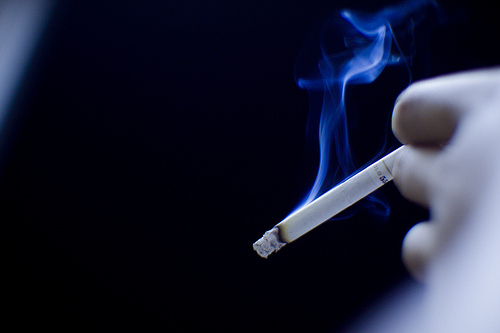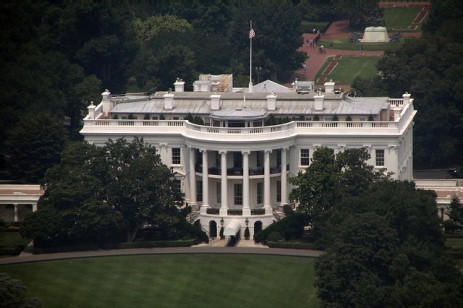Who is the greenest U.S. president in history? That’s the question [green-business magazine Corporate Knights] put to 12 leading environmentalists and environmental groups, each of whom were asked to rank their top three choices. It might seem an unfair question. Insoluble, even. What counts as “green”? Is it love of nature or legislation passed? Do good intentions count or are results all that matter?
Given these conundrums, the results revealed a surprising degree of consensus. In our tally of votes, there was a clear winner — one president who dominated with 28 points. Second and third received about half that, with 15 and 13 respectively. Fourth place fell to seven points, fifth to just three. Of 44 U.S. presidents, just eight received a vote. It seems environmentalists agree on these matters.
Before you read on, see if you can guess the top three. No peeking!
That’s the beginning of a piece I wrote in Corporate Knights magazine this month, part of a package that includes the survey of environmental groups. The presidents who got the most green votes:
- Teddy Roosevelt
- Richard Nixon
- Jimmy Carter
Read my piece to find out why.
As usual, Grist customers receive random additional thoughts — at no extra charge!
Thought the first: If there’s one mistake most people make about U.S. politics, it’s that they wildly overestimate the power of the president, who in the U.S. system has comparatively little control over domestic policy. I worried a little that the “greenest president” conceit would reinforce that. As I was careful to say in the piece, the presidents with the most green accomplishments — as opposed to good intentions or plans — were the ones who were pushed by, or at least aided by, exogenous forces. They had an amenable Congress, strong public opinion, chits to trade. They were at a convergence of circumstances, their own personal predilections often playing a fairly small role. U.S. presidents, far more than leaders of parliamentary democracies (to say nothing of, y’know, autocrats and dictators), are dependent on the vagaries of fate.
Thought the second: The press release and press conference accompanying the Corporate Knights package stress that the rankings include Republicans and that “protection of our natural world has a long tradition with both Democrats and Republicans.” I very frequently hear greens making this point, citing all the stuff that got done under Nixon (and it was a ton of stuff). But there are two Republicans on the list: Teddy Roosevelt and Richard Nixon. TR was part of a party that shares little with modern Republicans except the name. And Nixon was forced by a Democratic Congress and millions of people marching in the streets for the first Earth Day.
The fact is, as the GOP has evolved into what it is today — beginning with Reagan, then with Newt Gingrich in the House, then Bush II, then the Tea Party — concern for social goods generally, including a healthy environment, has plummeted. Here’s Andrew Hacker:
In 1987, fully 62 percent of Republicans favored some kind of social safety net and 58 percent saw some good in unions, signs of a then moderate majority. Today, only 40 percent and 43 percent hold those views. As recently as 1992, a hearty 86 percent were saying they favored environmental regulation of some sort. Today, with a purer party, it’s down to 47 percent.
Enviros say, with justification, that nothing has gotten done on the environment in the U.S. without bipartisan cooperation. And that is true, but it is a shallow truth. The No. 4 president on the list, Obama, got his green stimulus and gas-mileage increase past implacable GOP opposition. Yes, a few peeled off and voted for the stimulus, but a reluctant handful of Northeast moderate Republicans (of which there are fewer and fewer) does not a “bipartisan” effort make.
This is not to say the goal of getting Republican votes ought to be abandoned — it’s a necessity — but no one should fool themselves: The modern GOP has always had to be pushed kicking and screaming into environmental progress. And as the parliamentary discipline of the party increases, it is more and more difficult to push them, to peel off those few key votes. There is no secret concern for the environment burning like embers beneath the surface, waiting to burst forth. The GOP is an impediment, a barrier to overcome. Call it what it is.
Thought the third: Somewhat contrary to the above, the one president who I thought got short shrift from the panel of enviros was George Bush the Senior. He was the last president from the moderate, patrician wing of the GOP. He went to the first Rio Earth Summit and signed the U.N. climate convention, stating, “the United States fully intends to be the world’s preeminent leader in protecting the global environment.”
He also signed into law the 1990 amendments to the Clean Air Act, arguably one of the most cost-effective, welfare-enhancing pieces of legislation ever signed. Among other things, the acid-rain cap-and-trade program (ahem) was groundbreaking and wildly successful. When he signed the bill, Bush said: “The result of this new Clean Air Act will be that cancer risk, respiratory disease, heart ailments, and reproductive disorders will be reduced; damage to lakes, streams, parks, crops, and forests will greatly be lessened; and visibility will be notably improved.” That all proved true, at far lower cost than he or anyone else anticipated.
Kicking off U.S. commitment to international climate-change work and passing one of the greatest public-health bills in history — that ain’t bad. I would have put him at No. 3, bumped Carter and Obama down a slot, and knocked Thomas Jefferson off the list. But that’s just me.
Anyway: Read the piece!




